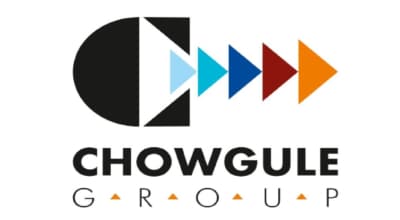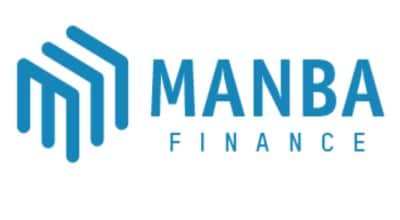- Home
- »
- Investment Banking
- »
- PE & VC Investments
Private Equity and Venture Capital Advisory
Navigate the PE & VC landscape with InCorp and turn your ambitions into reality
Enquiry Form

Total funds
Raised

Sectors
Covered

Clients
Served

Team

Funds Raised
in PE

Sectors
Covered

Clients
Served

Team
Funding growth opportunities through institutional investors and family offices
Our team’s combined experience of 100+ years in raising private capital enables us to evaluate transactions across emerging and new-age sectors and guide our clientele on an optimal fundraising strategy. We have an extensive network and a strong reputation among top institutional investors, which helps our clients connect to suitable investors. We regularly engage with Private equity and Venture capital funds, gaining deep insights into their investment philosophies, fund deployment strategies, and sector preferences. Supported by a team of over 15 professionals, we offer comprehensive support from strategy development, deal structuring & negotiations, due diligence support, and documentation to fund disbursement.
Service Areas Within PE / VC Funding

Collateral Preparations
We prepare fundraising collaterals, such as detailed financial models, Information Memorandums (IMs), and teasers, which are the first step for showcasing your company to potential investors.

Valuation Discovery
We undertake a comprehensive valuation discovery process through our internal analysis, peer benchmarking and feedback from the investment community so as to enable clients to maximize their value.

Due diligence support
Facilitating the business with its financial, legal, tax, and commercial due diligence, from setting up a virtual data room to responding to queries of the diligence agencies.

Deal closure compliances
Assistance in negotiating and drafting termsheets definitive agreements (SHA, SSA, SPA), and compliances in the purview of the Companies Act, 2013, Income Tax Act, 1961, Foreign Exchange Management Act, 1999, and other pertinent legislations.
InCorp Insights
Navigating Fundraising Instruments and Mechanisms
Companies in India have an option to issue various investment instruments to its investors in order…
IPO Listing Process in India: 8 Key Steps and Best Practices
With a transparent IPO listing process, favorable regulations, and high retail participation, the Indian IPO market…
SME IPO Listing Process: A Step-by-Step Guide
Large organizations have multiple ways of raising capital to fund their business activities, such as bank…
Debt Syndication: A Strategic Finance Solution for Businesses
Debt syndication is completely transforming the financial world. The following research conducted by McKinsey proves this…
5 Effective Ways to Raise Capital for Businesses Through Equity
Let us start by understanding why your business needs to raise capital. There are basically three…
The Speedy Way to Reorganize Group Companies: Understanding Fast-Track Mergers
Mergers and amalgamations are popular corporate restructuring strategies that companies use to achieve their business goals…
Note On One-Time Restructuring Of Loans
Real Estate is one of the major sectors which has been deeply impacted by the COVID-19…

FAQs
Private Equity: Private equity firms invest in mature, established companies, typically involving substantial capital. In India, the typical deal size is upward of INR 100 crs. They often acquire a significant minority stake or majority stake in the company and take an active role in its management through board seats, focusing on restructuring and growth to enhance long-term value before the eventual sale.
Venture Capital: Venture capital firms focus on startups and early-stage companies, providing smaller investments. In India, the typical deal size is between INR 5 cr to INR 100 cr. They usually take a minority stake and offer strategic support and guidance without exerting control over the company’s day-to-day operations, aiming to nurture innovation and growth.
Seed Stage: Initial funding is to develop an idea, create a prototype, or conduct market research. It typically involves smaller amounts of capital and high risk.
Early Stage: Includes Series A and B rounds, providing capital for scaling operations, product development, and market expansion. It focuses on companies with a proven concept and some revenue generation.
Growth Stage: Series C and beyond are aimed at scaling, entering new markets, and achieving profitability. It involves larger investments for established companies with significant growth potential.
Late Stage: Funds for companies approaching an exit strategy, such as an IPO or acquisition, to maximize value and prepare for liquidity events.
Digital Transformation: Increased investments in technology, e-commerce, fintech, and digital health as businesses are now adapt to digital operations.
Sustainability and ESG: Growing focus on Environmental, Social, and Governance (ESG) factors, with investments targeting sustainable and responsible businesses.
Sector Diversification: Expansion beyond traditional sectors like real estate and infrastructure to healthcare, education, and consumer goods.
Buyout Opportunities: Rise in buyout deals as private equity firms seek control over businesses for operational improvements and value creation.
Financial Performance: Revenue growth, profitability, cash flow, and overall financial health.
Market Position: Competitive landscape, market share, and industry growth prospects.
Management Team: Experience, track record, and ability to execute the business plan.
Growth Potential: Future growth opportunities, scalability, and innovation.
Risk Factors: Operational, market, regulatory, and financial risks.
Comparable Transactions: Valuations of similar companies in recent deals.
Economic Conditions: Overall economic environment and market conditions affecting the industry.
Revenue Growth: Consistent and rapid increase in revenue over time, indicating market demand and business scalability.
Customer Acquisition Cost (CAC): The cost of acquiring a new customer, reflecting marketing and sales efficiency.
Customer Lifetime Value (CLTV): The total revenue a business can expect from a single customer account, highlighting long-term profitability.
Burn Rate: The rate at which a startup is spending its capital, crucial for understanding runway and financial health.
Market Traction: Indicators like user growth, active users, and engagement rates show product-market fit and adoption.
Gross Margin: The difference between revenue and cost of goods sold, indicating financial efficiency and profitability potential.
clientele


















Expert Team

Inderpreet Chadha
Head - Investment Banking

Amit Kothari
Co-Founder - Debt Syndication

Jayesh Sanghrajka
Co-Founder - Stressed Assets
Direct to Your Inbox!
Stay updated with our curated newsletter content designed for you






































































